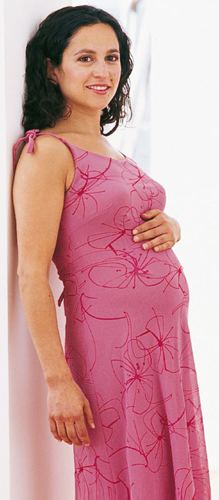Budgeting for Baby
Early pregnancy is a
great time to look closely at your financial situation and plan ahead.
There’s no doubt that having a baby can be expensive, but with a little
tweaking of the budget, and some prudent cuts, you can help to make sure
that you are in a comfortably stable financial position to enjoy life
as a parent.
Figure out how much you spend each month (include all regular events)
Consider swapping service providers for better deals
Consider paying utility bills online, or arrange for automatic payment by credit card or automatic withdrawal to avoid late fees Check your bank statements to be sure that regular transfers and direct debits are correct, up to date, and necessary Take a look at your credit card spending—it
might be a good idea to consolidate credit card debt on the card with
the lowest APR; once you’ve paid off the balance, pay your bill in full
every month Plan out income and expenditure based on income you will be receiving while you are on maternity leave Plan as though you have less income than you expect,
which will give you some flexibility if you decide to go back to work a
little later than planned, or if you decide to work fewer hours on your
return Make sure you are getting all the benefits to which you are entitled Take into consideration any shortfalls in your medical insurance, or the cost of having your baby at home or hiring a doula or nurse-midwife Childcare may be your single greatest cost when raising your baby; look into setting up flexible-spending accounts through your insurance provider Consider your car:
you are going to need something practical, reliable, and big enough to
fit child safety seats and carry baby gear—if you have a sedan, you may
want to consider changing to a station wagon, SUV, or crossover vehicle Start putting a little money aside each month to spend after your baby is born; even a few dollars a month will quickly accumulate Add up the estimated costs of “running” your baby—include
childcare, babysitting, diapers, formula (if you don’t intend to
breastfeed), baby equipment and clothes, baby toiletries, and toys and
books Buy one key item for your baby each month, to spread out the cost Register big items,
such as your baby’s crib, stroller, and car seat, on a “wish list” at a
good department store or baby superstore, so that friends and family
looking for gifts can get you what you really need Remember that the most expensive items are not necessarily the best Don’t be proud! Ask family and friends with older children to lend you secondhand equipment or clothes, and visit tag sales or eBay

Your Basic Maternity Wardrobe
While pregnancy is a
great opportunity to purchase a new wardrobe, it’s wise to cut corners
where you can. For one thing, your maternity clothes may never be worn
again after the birth of your child. Here are some great ideas for
dressing well—and on a budget.
Think about the seasons for which you are shopping, so you don’t end up with a collection of long-sleeved maternity tops if you’ll be heavily pregnant in summer Start with a few items and add pieces as you need them—aim to buy one or two new items every month throughout pregnancy to keep reviving your maternity wardrobe For the office, purchase a few neutral, simply shaped basic garments, and accessorize them with scarves and jewelry Don’t hesitate to accept offers of maternity clothes
from friends and relatives; wearing these clothes at home will leave
you with a little more money to spend on clothes for going out Keep your own style and comfort level in mind—if you weren’t comfortable wearing dresses or sweater sets before your pregnancy, you are unlikely to be so now Buy quality, feel-good clothes—you are going to be wearing these a lot Invest in two good-quality maternity bras, and don’t be surprised if they need to be replaced in a few months Maternity underwear is an unnecessary expense—just
buy a larger size; however, this doesn’t apply to other maternity
clothing, which is specially designed to accommodate your growing bump It’s worth investing in a good pair of maternity pants—something stretchy, with an adjustable waist, or low-slung trousers that can sit neatly under your growing bump If you’ve got an old pair of jeans that are ready for recycling, cut out the front, and sew in an elasticized panel Raid your partner’s cupboard—large
T-shirts or dress shirts can be pulled in with a low-slung belt to
create comfortable maternity wear that doesn’t impact on your budget Empire-cut dresses will see you through most of your pregnancy You can purchase a “belly band,” which is designed to fill the gap between shirts or tops and pants, as your waist expands Don’t forget your shoes—your
center of gravity changes when you are pregnant as your weight shifts
forward, and high heels can be dangerous (not to mention uncomfortable);
look for elegant flats or shoes with a low heel In the summer,
opt for clothing made of natural fabrics, such as linen and cotton;
loose-cut dresses and pants and flowing skirts and tops will help you
stay cool Think twice before investing in a winter coat—you
are likely to feel very warm toward the end of your pregnancy, and may
find it more comfortable to wear plenty of layered knits rather than one
coat or jacket

|